16% (and counting) of companies worldwide are now fully remote. The recent cultural shift to remote staffing, largely driven by the pandemic, has radically transformed company dynamics, with many hiring and recruitment processes moving entirely online. While there are many advantages to building remote teams, it can often be challenging to find and hire the right talent without meeting them in-person, especially if you don’t have a best-in-class online recruitment process in place.
As an employer, it’s critical to hire best-in-class remote talent from the start, so you don’t have to deal with costly and time-consuming employee churn. And while every position will come with unique requirements, all successful remote employees need a handful of core skills, with a particular emphasis on soft skills, in order to be successful. At Extend Your Team, we’ve worked with dozens of organizations to find, recruit, and staff their perfect team. Over the years, we’ve developed a list of the top skills to look for when building a fully remote team.
Soft Skills
Soft skills are abilities or attributes that help employees work together effectively, improve internal processes, and build strong client relationships. In a remote environment, soft skills are more important than ever before, because it’s critical for employees across departments to have strong communication, organization, and collaboration capabilities that boost company culture and efficiency.
Communication. In a remote-first workplace, employees need to communicate clearly and effectively, both orally and digitally. Research shows that poor communication decreases productivity, work quality, and the general well-being of remote teams. But how do you screen for good communication skills? We recommend holding a number of behavioral interviews, ideally involving some of the team members that the new hire will be interacting with on a daily basis, as well as requiring written samples if the job is particularly communication-heavy.
Organization & Time Management. Without the visibility and transparency that comes with an in-house team, remote employees must be highly organized with strong time management skills. Remote workers are inherently more autonomous than in-house employees, which means they will occasionally need to develop their own organizational structures to deliver timely, quality work. While these skills are critical for success in almost any job, the success of fully remote teams is highly dependent on the ability of employees to stay on task and on time. How to screen for time management? It’s all in the questions you ask. Ask them to provide an example where they had to juggle multiple responsibilities. Give them a particularly challenging time-management scenario and ask them which tasks they would focus on first.
Collaboration. For a remote team to function effectively, employees need to collaborate. But as Harvard Business Review’s research on collaborative teams shows, that’s easier said than done. Candidates that are experienced with virtual collaboration and have strong relationship-building and task management skills are more likely to be effective collaborators and team members. Always ask for examples of teamwork to vet out whether the candidate has experience working with others, and ask how they would handle tense moments or disagreements at work.
Technical Skills
The technical skills required for a job will vary greatly depending on the job in question, whether it be bookkeeping, engineering, or IT support. However, the one skill that is always required for a seamless remote work environment is digital literacy.
Virtually training new employees on company platforms and tools can be extremely time-consuming and frustrating. To minimize onboarding hiccups and ramp times, look for candidates with a high degree of digital literacy, experience across a broad range of platforms, and a willingness to learn. Ask your candidates if they’ve ever worked in the systems that you use the most. If they have, great. If they haven’t, ask if they’ve ever worked in a similar system. That will help you judge if their learnings and experiences will translate well into your organization. Look for employees that have worked across platforms, because that demonstrates adaptability and flexibility.
Trust
At the end of the day, a remote workplace requires more trust between employees and employers. The wrong employee may take advantage of the freedom and autonomy of remote work, which can negatively impact your bottom line. That’s why it’s important to rely on an extensive interview process that consists of multiple resume screens, behavioral interviews, and hiring committees. A rigorous interview process will ensure only the top contenders make it through.
With a business partner like Extend Your Team at your side, you can rest easy knowing that you’re hiring experienced, skilled, and reputable talent to meet your unique business needs.
***
Extend Your Team was founded by business leaders who recognize the power of remote staffing and outsourcing when done right. We’ve built an exceptional offshore workforce that has helped hundreds of organizations build successful remote teams. Through our five-step process, we work to understand your unique business needs and curate a qualified list of top candidates, reducing the time, costs, and risks associated with the hiring process. Then, we provide ongoing support to ensure your expectations are fulfilled.
If you’re looking to build or expand your remote team with top-quality candidates, schedule a free consultation with Extend Your Team to learn more about our approach and talent pool.

